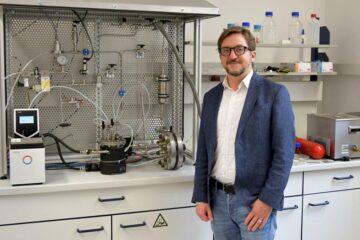Study Suggests Protein Plays Role in Protecting against Stroke

A few years ago, scientists discovered a protein with an affinity for oxygen expressed most abundantly in neurons. In reference to its resemblance to hemoglobin, the key transporter of oxygen in blood, they named it neuroglobin. Its function, however, was unclear. Now findings published today in the Proceedings of the National Academy of Sciences suggest that the protein helps protect brain cells from damage during a stroke.
David Greenberg and his colleagues at the Buck Institute for Age Research in Novato, Calif., investigated the role of neuroglobin (Ngb) in brain cell cultures and in the brains of mice. When the researchers deprived the brain cells of oxygen—mimicking the conditions of a stroke—neuroglobin levels increased. They then simulated stroke-like conditions in mice by blocking blood flow to the brain and again observed increased levels of the protein. Moreover, the stroke-induced cell damage was mediated by the quantity of neuroglobin present: reducing Ngb expression worsened brain injury, whereas increasing Ngb expression lessened it.
According to the report, the research results suggest that neuroglobin plays a role in sensing or responding to oxygen deprivation in the brain. „Understanding how Ngb and other hypoxia-inducible proteins confer neuronal protection,“ the authors conclude, „may help in the development of improved treatment for ischemic disorders such as stroke
Media Contact
Weitere Informationen:
http://www.sciam.com/news/121101/3.htmlAlle Nachrichten aus der Kategorie: Medizin Gesundheit
Dieser Fachbereich fasst die Vielzahl der medizinischen Fachrichtungen aus dem Bereich der Humanmedizin zusammen.
Unter anderem finden Sie hier Berichte aus den Teilbereichen: Anästhesiologie, Anatomie, Chirurgie, Humangenetik, Hygiene und Umweltmedizin, Innere Medizin, Neurologie, Pharmakologie, Physiologie, Urologie oder Zahnmedizin.
Neueste Beiträge

Ideen für die Zukunft
TU Berlin präsentiert sich vom 22. bis 26. April 2024 mit neun Projekten auf der Hannover Messe 2024. Die HANNOVER MESSE gilt als die Weltleitmesse der Industrie. Ihr diesjähriger Schwerpunkt…

Peptide auf interstellarem Eis
Dass einfache Peptide auf kosmischen Staubkörnern entstehen können, wurde vom Forschungsteam um Dr. Serge Krasnokutski vom Astrophysikalischen Labor des Max-Planck-Instituts für Astronomie an der Universität Jena bereits gezeigt. Bisher ging…

Wasserstoff-Produktion in der heimischen Garage
Forschungsteam der Frankfurt UAS entwickelt Prototyp für Privathaushalte: Förderzusage vom Land Hessen für 2. Projektphase. Wasserstoff als Energieträger der Zukunft ist nicht frei verfügbar, sondern muss aufwendig hergestellt werden. Das…





















